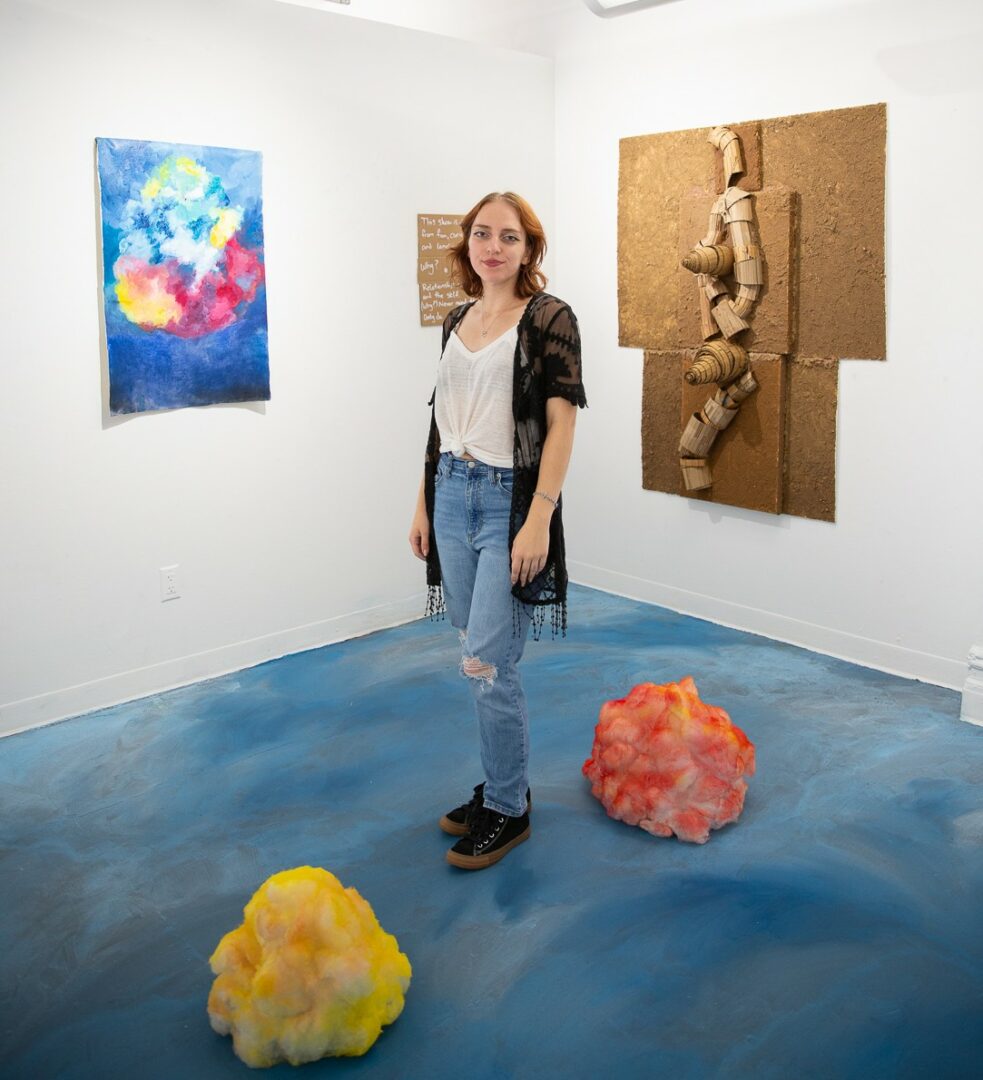We recently connected with Marlena Urban and have shared our conversation below.
Hi Marlena, so excited to have you with us today, particularly to get your insight on a topic that comes up constantly in the community – overcoming creativity blocks. Any thoughts you can share with us?
Whenever I hit a creative block, I create random things that don’t make sense. When I let my ego leave the studio and mindlessly create whatever feels right, I am not hindered by my judgment of what is considered “good” or “bad” art. Instead, I hold a sketch to the same level of respect and attention as I would with a formal painting. I’m also not afraid to completely change, dismantle, or ‘destroy’ something I’m working on to change my creative direction. If I’m creating a sculpture or painting and mid-way through I realize there isn’t enough breadth or creative livelihood in that piece, I will try to find the root of that issue, whether it is the medium, idea, or process, and create a solution from there. Sometimes, I will even do a series in different media based on one concept. Then, I will examine the dialogue between those pieces and find the similarities and differences between the two. Once I dissect my projects like that, I feel like I can peel back layers of ideas endlessly. Essentially, I can create a series of works based on one idea. It’s spine-chilling to be in the middle of that process, and I think that’s what makes being in the studio, working as an artist, worth it.
I always try to expand on every project idea I have, whether it’s the concept, tools, or medium. I also pull ideas from other areas in visual, performance, or sonic art. That way, I am not limited to one form of art-making.
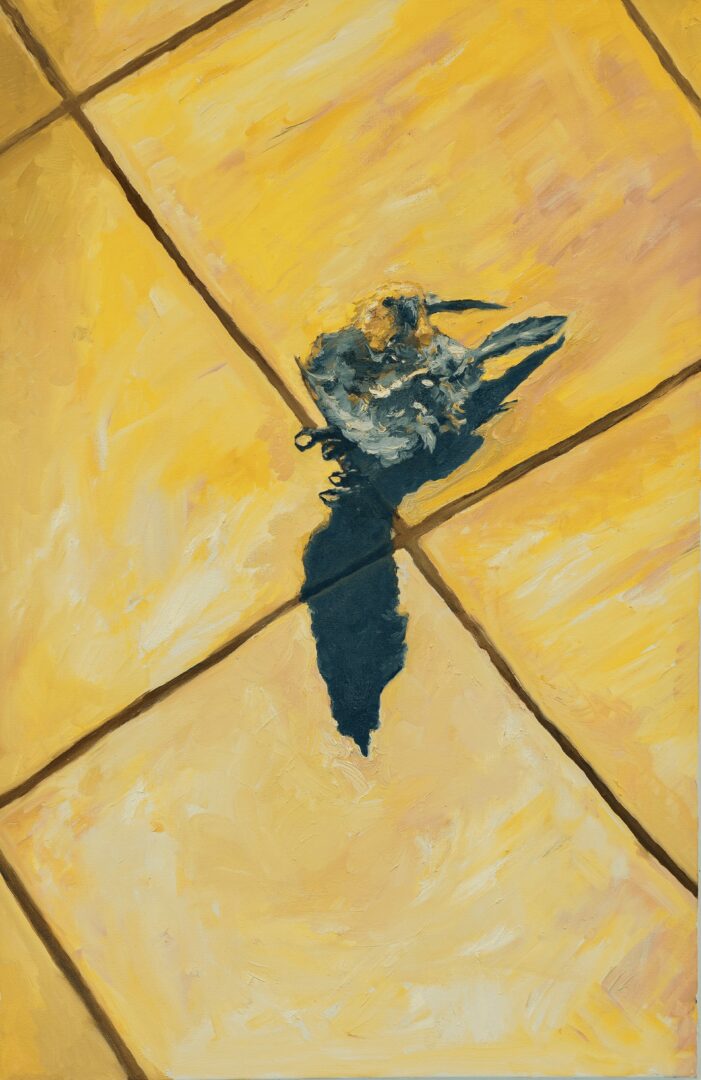
Appreciate the insights and wisdom. Before we dig deeper and ask you about the skills that matter and more, maybe you can tell our readers about yourself?
I’ve always found art as a grounding activity where I focused all my energy into creating things larger than my life. Recently, I realized I just love creating things. Whether it’s cooking, sewing, stories, paintings, zines, or sculptures. I feel that this is the god-complex that many artists are stereotyped for. I think it’s an aspect that an artist should accept because creating something beautiful from a blank canvas or paper is an impressive quality to have. Especially when your artwork moves someone else.
Being an artist is most worth it to me when I see the public interacting with my art. Whether they smile at it, touch it, or just look for a moment. Growing up, making artwork was almost exclusive to me and those I trusted to share with. By branching out as a professional artist with an MFA, I’ve learned to grow out of my comfort zone and share my ideas with any audience.
I don’t take any experience for granted and count my blessings whenever I get into an exhibition, meet other artists, or converse with patrons. My beginnings in art school stem from community college. I also worked with a non-profit for some time. Community and small businesses are important to me, and I admire anyone else who competes against large corporations with their products. I believe that it’s important to stand your ground and not disrespect your worth by giving up.
Right now, I am focused on gaining experience in art teaching, and I love it! It’s mind-blowing to watch my students grow into their artistic identities as I teach them techniques, skill-building, and creative freedom within the curriculum. It’s almost as gratifying to teach a class of creative people as it is to make art. I often make small sculptures for my younger students, and it’s very gratifying to give them something handmade because it’s special and rare nowadays. Rare in the sense that many toys/figurines are factory-made, and special because I don’t think any art teacher has ever done that for me as a kid. But my high school teacher was my idol because I knew I wanted to be something like her when I grew up. So it’s beautiful to be on the other side of that.
Post-grad school has been slow-moving for me. I graduated from Brooklyn College, so I feel connected to Brooklyn in some regard. This year, I’ve shown work at Brooklyn Art Haus in Williamsburg and Monstahouse in Bushwick. I’m in the process of finding a studio at a decent price, so until then, I’ve put oil painting on hold. I love to work large scale and do installation pieces. Something about putting in the physical labor as well as the mental and emotional output in my work makes me feel like I’m creating life into my pieces so they can exist on their own. I think it’s good to give my all into my artwork because that’s what I admire most about the artists I connect with, and that allows me to connect with their work further.
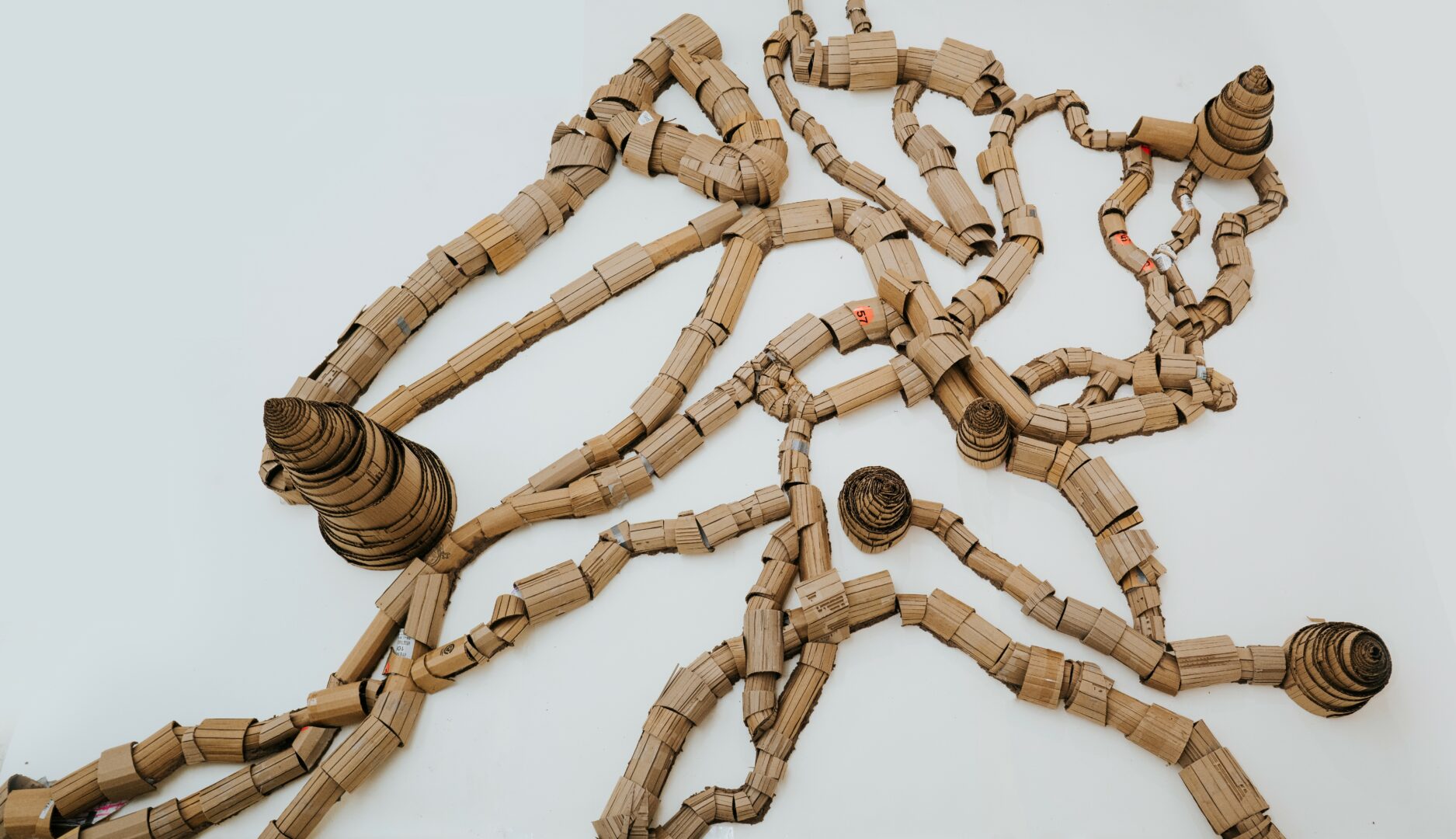
There is so much advice out there about all the different skills and qualities folks need to develop in order to succeed in today’s highly competitive environment and often it can feel overwhelming. So, if we had to break it down to just the three that matter most, which three skills or qualities would you focus on?
Honestly, I’m glad I was a self-taught artist when I was a kid. Kindergarten through middle school, I hated art class because I didn’t like how the art teachers told me what I could and couldn’t make in my artwork. I always butted heads with the art teachers because I felt they took the fun and creativity out of art. Instead, I drew for myself. And I still do! I can’t let anyone take that away from me. I’ve always had a sketchbook that was for my eyes only. I think that’s healthy for an artist to have something like that in their library of projects they’ve made, because not all art made should be shared with the public. It’s good to be selfish in that regard.
I also never get hung up on technical terms, ratios, design/aesthetics, or precision. I just aim for authenticity without forcing it. I can’t ever force authenticity because it’ll end badly. Just as I can’t force vulnerability in my art. I can be blunt, humorous, dark, and romantic. I try for originality, but I also appreciate others’ advice for creative direction in my artwork.
I’ve grown thick skin that’s also thin enough to allow growth and evolution in my artwork. I love feedback and critiques on my art because the nature of art is subjective, so it’s important to gain insight from other perspectives. I like to live by the Confucius quote, “If you’re the smartest person in the room, you’re in the wrong room.” If I didn’t push myself to keep learning and adapting with the changing environment of my art education, I wouldn’t have evolved the way I have as an artist. That doesn’t necessarily mean I needed to pursue art in college in order to be a professional artist. No artist needs an education in art in order to be a successful artist. They just need the heart to create and the perseverance.
I also think community plays a large role in being creative. Artistic people should be in conversation with each other, bounce ideas off one another, and create things alongside one another in order to make a flourishing body of work in their own regard. Creativity shouldn’t be stifled by the artists’ surroundings. They need a healthy environment exclusively for creating art. Even if it’s just listening to artist talks, reading art magazines, or going on gallery tours, a creative person should be around other creative people.
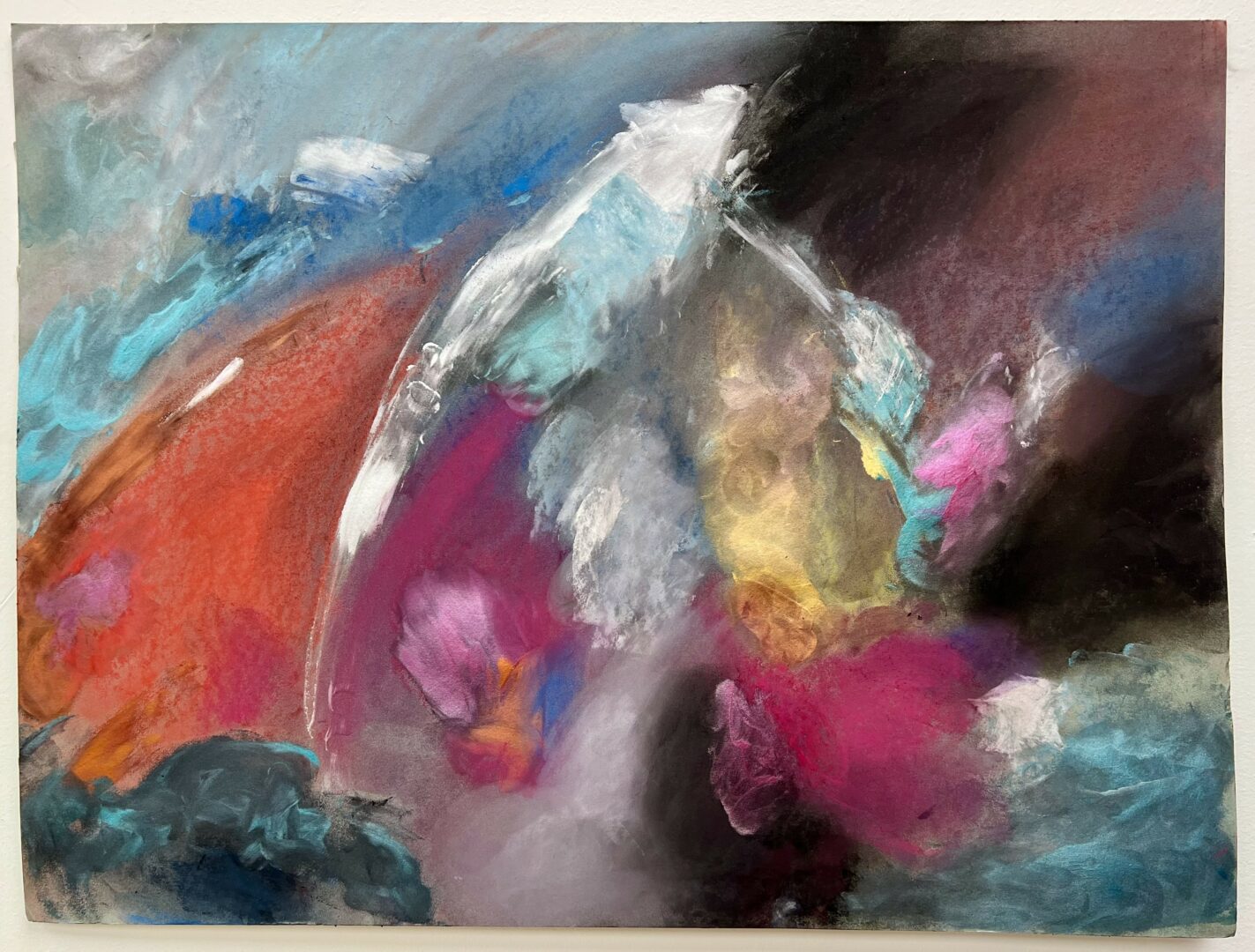
Who has been most helpful in helping you overcome challenges or build and develop the essential skills, qualities or knowledge you needed to be successful?
I owe it all to my first painting professor at Community College, where I learned oil painting. I realized I wanted to be a professor, learned the ins and outs of painting, critiques, and pushed myself further than I thought possible. I’m happy to know I’ve made him proud and that I was able to become what I wanted to be.
He taught me how to be a painter, and I’m grateful he recognized the potential in me in the class.
Contact Info:
- Website: https://www.marlenaurban.com/
- Instagram: https://www.instagram.com/marlena.art/
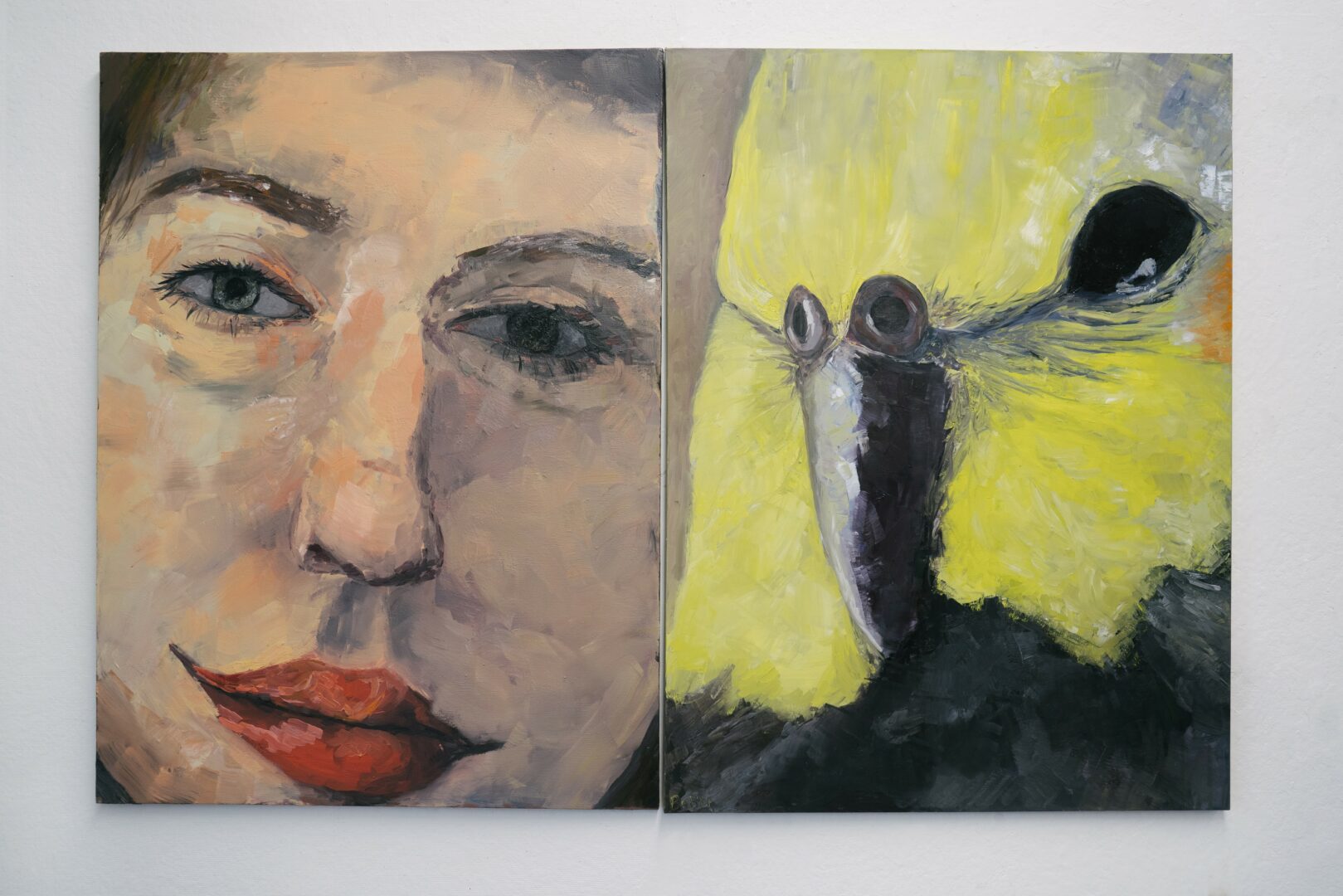
so if you or someone you know deserves recognition please let us know here.

